Fantasy sports apps have come a long way since their inception, transforming the way sports enthusiasts interact with their favorite games. Fantasy sports platforms now draw millions of users worldwide, enabling them to assemble virtual teams using real-life players and compete in leagues for entertainment, prizes, or money.
With the growth of the industry continuing to progress, one of the most important things that will decide the success of fantasy sports apps is monetization. Without an adequate fantasy sports app revenue model, even the most compelling and innovative apps are liable to falter.
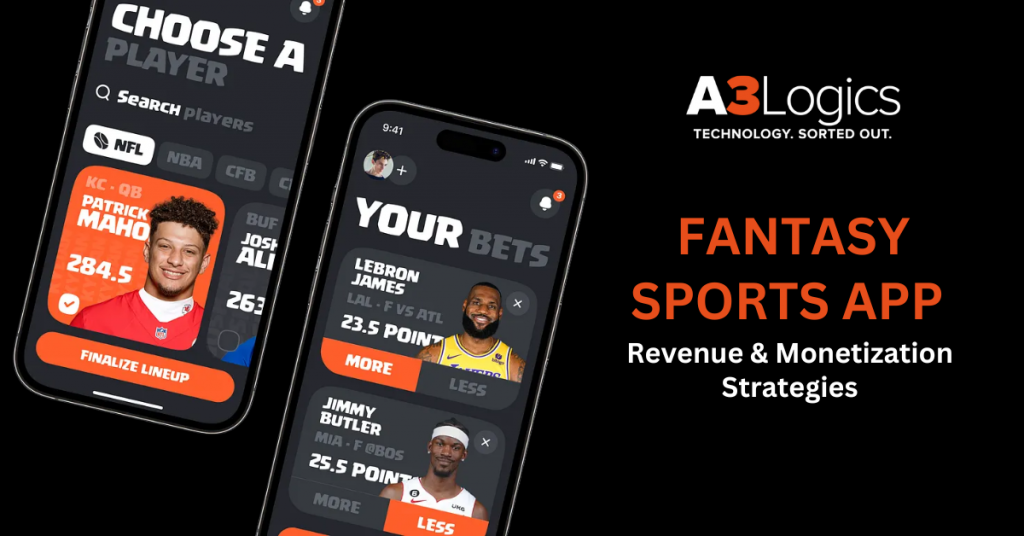
In this blog, we dive into the different fantasy sports app revenue and monetization strategies. We will also explore the most successful fantasy sports app revenue model and provide insights on how companies can effectively harness the potential of this multi-billion-dollar industry.
Table of Contents
What is a Fantasy Sports App?
A fantasy sports application is an app or website through which players create virtual teams composed of real sports players. These virtual teams play against each other based on the actual performances of the athletes in real-life games. Players are able to plan, monitor statistics, and handle their teams for the entire season or during day-to-day games.
With functionalities such as live scores, player trading, and playing leagues, fantasy sports apps give sports fans an innovative, engaging means of following their favorite games. The fantasy sports app revenue was estimated to be worth USD 29.85 billion in 2023, and it is projected to expand at a 15% CAGR between 2024 and 2032 depicting an immense scope for growth.
Major Features of a Fantasy Sports App
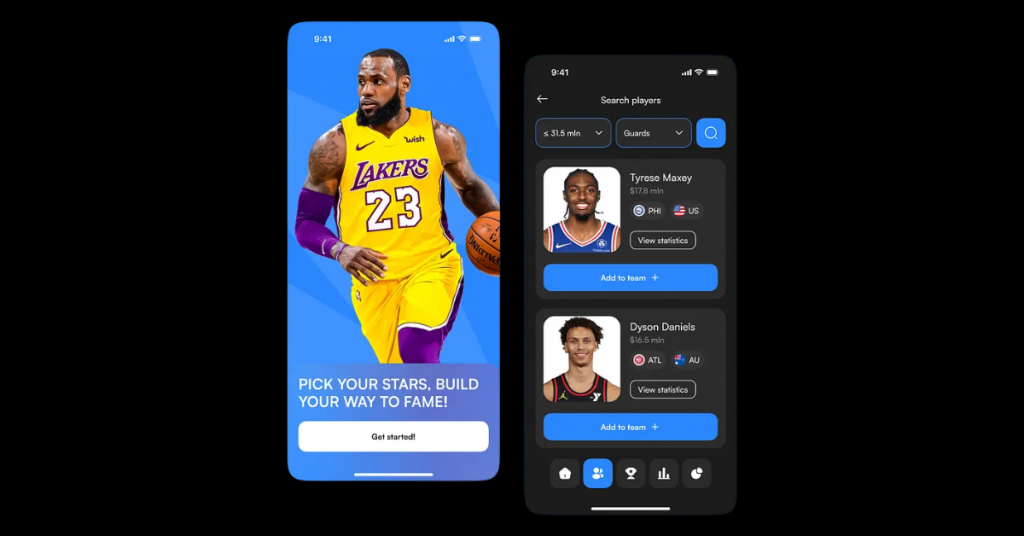
A feature-rich app is the key for user retention. Today’s users need real-time updates, rich experiences, and tailored content in the palm of their hands. Building a strong sports app entails having a host of features catering to fans, players, teams, and analysts.
Users of fantasy sports are 34.4 years old on average, and more than half of them work full-time, making them perfectly capable of making in-app purchases. Here is an overview of the major features that every sports app must have to ensure user attention:
1. User Profiles & Personalization
Secure user registration and authentication enable fans to build personalized profiles. Users can choose their favorite teams, leagues, or players, providing a customized in-app experience with personalized content, alerts, and suggestions.
2. Live Streaming & Video Highlights
Embedding high-quality live streaming keeps fans engaged with games in real-time, no matter where they are. Post-match highlights, replays, and multi-angle views increase viewer engagement and provide on-demand access to game moments.
3. Real-time Scores & In-Depth Statistics
Offer immediate score updates, player statistics, league tables, and past match history. Live comment and play-by-play news keep fans up to date even when they’re unable to view the match.
4. Push Notifications & Alerts
Timely notifications for match kickoffs, goals, substitutions, injuries, and scores keep users interested and coming back to the app. Customizable notification settings allow users to decide what events they wish to be notified of.
5. Social Features & Community Engagement
In-app messaging, fan voting, comment forums, and social platform integration enable fans to interact, share opinions on matches, and post content—building a sense of community.
6. Fantasy Leagues & Gamification
Fantasy sports modules and gamification aspects such as leaderboards, prediction contests, and fan challenges increase user engagement and session durations.
7. Ticket Booking & Merchandise Store
Provide users with the ease to buy match tickets and official merchandise from within the app. Integration with payment gateways provides a seamless and secure checkout process.
8. AI & Analytics Integration
Utilize artificial intelligence to supply users with personal content, performance forecasts, and intelligent suggestions relying on watching routines and tastes.
For more information, you can find out about the features of fantasy sports app for a better understanding.

How Do Fantasy Sports Apps Work?
The mechanism of a fantasy sports app is created to maintain users engaged, entertained, and returning for more. Here’s a step-by-step explanation of how such apps function:
- User Registration: Users register an account either via email or social media authentication.
- Drafting Teams: Users draft a team by choosing actual athletes from the list of players available in the sport one is interested in.
- Scoring System: Earning points from the actual playing performance of players on the teams. A basketball basket or football touchdown is awarded points.
- Live Updates: It provides real-time scoring so the users are informed about the games’ progress while they can understand how well the teams are actually performing.
- Participation in Leagues: Players join private or public leagues. Leagues may charge an entry fee, with the prize pool given to the best players at the season or tournament conclusion.
Apps for Fantasy Sports and Their Business Model
Apps for fantasy sports work by letting users build virtual teams out of real players and pit them against one another based on how well they perform in real games. Platforms for fantasy sports fall into two primary categories:
Daily Fantasy Sports: Users create teams for a single day or week in daily fantasy sports (DFS), which are short-term competitions with cash awards given out according to performance.
Season-Long Fantasy: Conventional leagues in which participants oversee their teams during a sporting season.
Important players in this sector include:
- Users: Sports enthusiasts who take part in competitions and fantasy leagues.
- Sponsors: Businesses hoping to use app sponsorships to promote their goods.
- Advertisers: Companies that use applications for fantasy sports to connect with specific audiences.
- App owners are the companies that create and run the fantasy sports platforms.
Why Are Fantasy Sports App Revenue & Monetization Strategies Important?
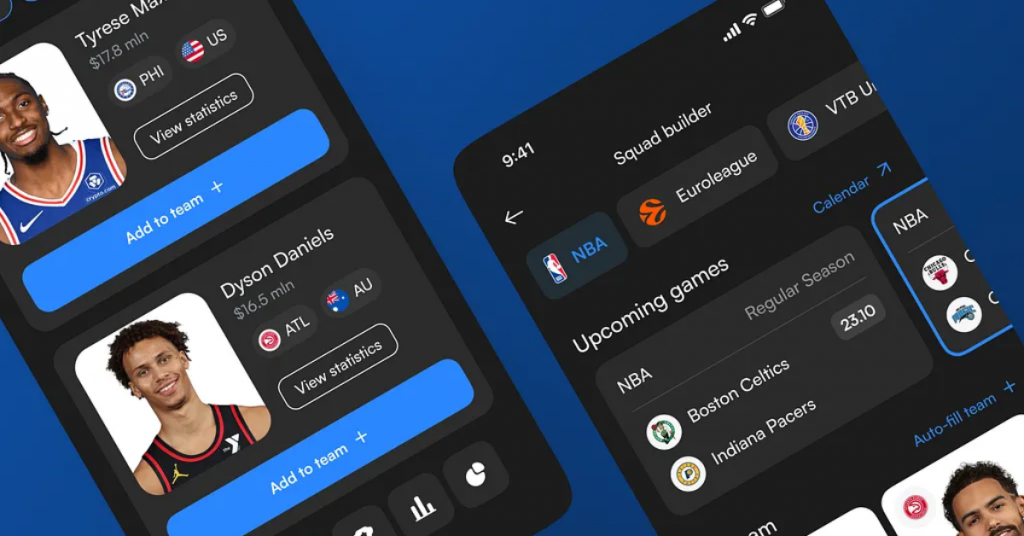
Successful fantasy sports app monetization strategies are the secrets to the success and sustainability of a fantasy sports app. Without a robust fantasy sports app monetization strategy, maintaining the app’s development and scaling it is difficult. Here’s why fantasy sports app revenue and monetization strategies are so important:
1. Generating Steady Revenue
For an app to be successful in the long run, it must create a steady fantasy sports app revenue stream. With a consistent income, app developers are able to continue enhancing the user experience, introduce new features, and finance ongoing operational expenses.
2. Increasing Profitability
Fantasy sports app monetization not only supports the app—it can actually make it more profitable. By thoughtfully choosing and mixing streams of revenue, you can grow your app’s bottom line without sacrificing user satisfaction.
3. Maximizing Customer Value
Value proposition monetization strategies that benefit the user, including providing premium features or exclusive content, assist in driving customer satisfaction, retention, and lifetime value (CLV). Satisfied users are more inclined to pay more for in-app purchases or subscriptions.
4. Offering Flexible Monetization Opportunities
Various users will have varying spending preferences. Having a flexible fantasy sports app revenue model like pay-per-play, premium subscription, or in-app advertising ensures that you reach more people and provide multiple means of engagement for the users.

How to Monetize a Fantasy Sports App?
There are several fantasy sports app revenue model that we can consider. Each monetization approach can be customized to suit the unique needs of your app and users. Some of the most widely used fantasy sports app revenue model is as follows:
1. In-App Purchases
One of the most prevalent fantasy sports app revenue-generating ways is by using in-app purchases. Customers are able to purchase virtual products like player enhancements, special features, team decorations, or even additional salary cap space to pick up players. The fantasy sports app revenue model performs particularly well if your app has some extra value using premium goods or upgrades that enhance the customer experience.
2. Subscription Model
The subscription feature enables customers to pay a regular fee (weekly, monthly, or yearly) for special features. Some special features might include enhanced analysis, more in-depth player stats, personalized draft resources, or even the right to participate in more leagues. Tiered subscription plans—free, premium, and VIP—may appeal to users with varying means.
3. In-App Advertising
In-app advertising is a great source of income, particularly for popular apps. The advertising can be banner ads, interstitials (full-page ads), or video ads, which the user can view in exchange for a reward. Programmatic ad networks can serve ads automatically based on user behavior and preference, which makes this viable for popular apps with much traffic.
4. Crowdsourcing
In crowdsourcing – fantasy sports app monetization strategy, the users add money to invest in particular tournaments, contests, or leagues. This is best done in paid leagues where the entry fee paid by the user is added to the prize fund. Crowdsourcing allows the users to contribute directly to influencing the rewards present, and the users feel more connected to and part of this.
5. Entry and League Fees
One of the simplest fantasy sports app monetization strategies is to charge entry fees for contests and leagues. Entry fees are paid by players, and the pool is distributed among the winners. This strategy would be most useful for daily fantasy sports sites where users can play multiple contests each day or per week. The largest revenue source for fantasy sports apps comes from paid contests and entry fees, where users compete for cash prizes.
6. Merchandise Sales
Direct sales of sports-related merchandise through the app can be a lucrative side revenue stream. Team jerseys, branded equipment, or limited-edition memorabilia can be sold as part of the app experience, particularly if the app is highly related to particular sports or leagues.
7. Data Monetization
Fantasy sports mobile apps gather extensive user information, such as players’ likes and dislikes, strategies for team creation, and behavior patterns. It can be profitably sold as insights to sport brands, sponsors, or sporting teams to make their fan engagement better.
8. Affiliate Marketing
Affiliate marketing provides fantasy sports app developers with an opportunity to gain a commission through promoting third-party products or services within the application. For example, you may collaborate with sportsbooks, sport equipment manufacturers, or other businesses that focus on sports enthusiasts. When a consumer clicks on a product link and buys something, you earn a percentage of the sale.
Top Fantasy Sports Apps & Their Revenue Models
Let’s take a closer look at some of the most successful fantasy sports apps and how they make money from their platforms:
1. FanDuel

FanDuel’s fantasy sports app revenue model is based on entry fees for daily fantasy games, where players pay to compete and receive prizes depending on how their team performs. They also have sports betting in some areas, providing other sources of income. FanDuel also includes in-app advertisements and sponsorships from top brands.
2. DraftKings
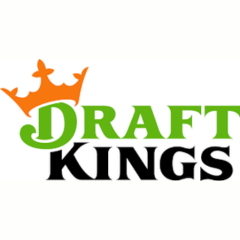
The DraftKings operates similarly to FanDuel, generating revenue through paid contests. DraftKings also leverages the power of sports betting, providing additional revenue by allowing users to place bets on live events. Moreover, the platform offers a subscription model for users to access premium content like expert advice and strategies.
3. ESPN Fantasy Sports
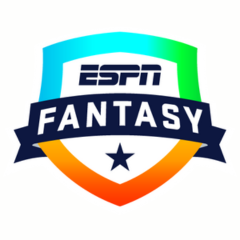
ESPN’s profits are derived from ads inside the app, with scope for user-targeted ads. ESPN also earns money through premium offerings such as enhanced statistics, analysis, and customizations of leagues.
4. CBS Fantasy Sports

CBS earns money from its fantasy sports site mainly by charging premium subscriptions. Advanced features and tools for enhanced team management can be accessed by users. CBS also displays ads inside its free-to-use fantasy leagues.
5. Sleeper Fantasy App

Sleeper emphasizes providing a distinct social experience, and this is the reason why it is so popular among its audience. Its income is generated from premium feature subscriptions and paid league entrance fees. The app also supports sponsored content as well as ads targeting users.
6. Yahoo Fantasy App

Yahoo’s fantasy sports application generates revenue from a combination of premium subscription-based more feature-rich offerings and in-app advertising. Yahoo also has the revenue stream of offering paid league opportunities, generating income in the form of league fees.
How to Select the Most Appropriate Fantasy Sports App Revenue Model?
Your fantasy sports app revenue model selection for your fantasy sports application depends on a variety of factors:
1. Determine the App’s Purpose: Are you looking to create a social community, or do you want to monetize quickly? The response will determine which revenue models are most suitable for your app.
2. Study Market Trends: Investigate what’s successful in the market. Observe competitors, analyze their revenue models, and observe how they fit into industry trends.
3. Consider Alternative Monetization Strategies: Don’t rely on just one revenue stream. A mix of models can provide more stability.
4. Select the Best Fit for Your Business Model: Choose a fantasy sports app revenue model that suits your app’s functionality, user behavior, and long-term goals.
Future of Fantasy Sports App Revenue Monetization
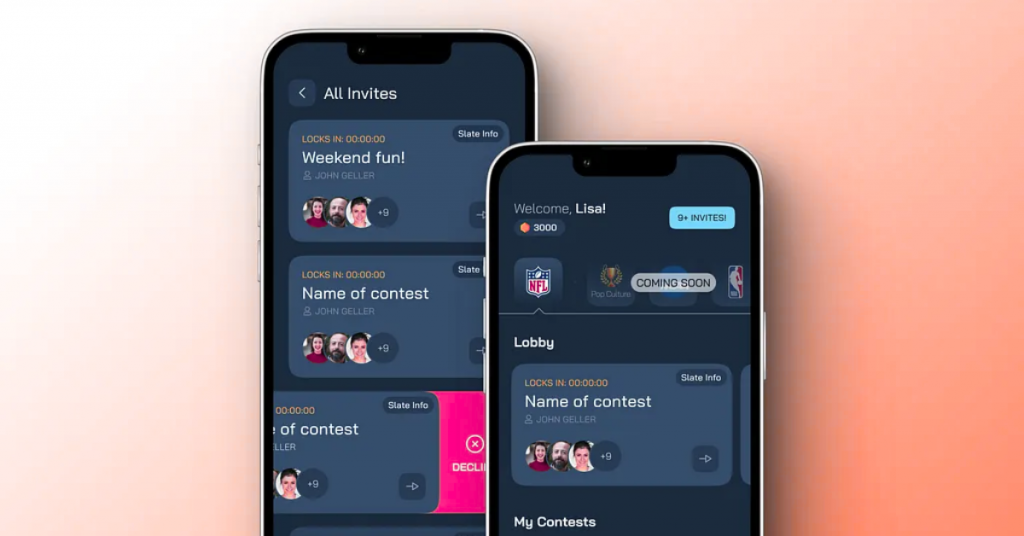
The fantasy sports segment is transforming rapidly, influenced by tech growth, content engagement strategies, and international market growth.
As competition intensifies, app developers and companies are looking for unique methods to monetize fantasy sports applications while optimizing user experience. Below are some major trends that will outline the future of fantasy sports app revenue generation:
1. Blockchain & NFTs: A New Era of Digital Assets
Blockchain technology and Non-Fungible Tokens (NFTs) are poised to transform in-app purchases and fantasy sports transactions. Using decentralized and secure payment systems, fantasy sports apps are able to provide users with verifiable ownership of digital assets, including:
- Unique Player Cards & Digital Collectibles that may be purchased, sold, or traded.
- Tokenized In-game Items & Rewards that amplify user interaction.
- Smart Contracts for Transparent Payments guaranteeing fair play and smooth transactions.
These blockchain-based solutions not only increase security but also open new revenue opportunities through the monetization of digital memorabilia and distinctive fan experiences.
2. Cryptocurrency Payments: Increasing Financial Freedom
With increased adoption of cryptocurrency, adding Bitcoin, Ethereum, or stablecoins as payment modes can attract a technologically adept, global consumer base. Primary advantages are:
- Quicker & Borderless Transactions for deposits, withdrawals, and in-app transactions.
- Reduced Transaction Fees than with conventional banking.
- Increased Security & Privacy for fans who want decentralized financial systems.
By mashing up crypto wallets and smart pay solutions, fantasy sports applications can expand their payment ecosystem and reach a wider demographic.
3. AI-Powered Personalization: Boosting Engagement & Ad Revenue
Artificial Intelligence (AI) is at the center of user experience upgrade and precision monetization. AI-powered features in fantasy sports applications are:
- Personalized Content Suggestions based on user activity and interest.
- Smart Ad Placement & Dynamic Pricing for maximizing ad income without interrupting user experience.
- AI-based Predictive Analytics to provide tips and player picks of winning strategy and enhancing user stickiness.
Applying machine learning algorithms, applications can drive peak user engagement, boost in-app spend, and drive increased advertisers’ conversions.
4. Global Expansion: Globalizing New Revenues
Fantasy sports are increasingly becoming popular in new markets, especially in emerging regions such as Asia, Africa, and Latin America. Entering these markets offers a number of monetization opportunities:
- Localization & Multi-language Support for reaching regional users.
- Integration with Local Payment Methods to facilitate transactions.
- Region-specific Fantasy Leagues & Partnerships to target local sports fans.
With increased smartphone penetration and internet availability, fantasy sports platforms can reach out to millions of new users, boosting revenue potential substantially.
How A3Logics Can Help You Monetize Your Fantasy Sports App
We, at A3Logics, as a leading fantasy sports app development company provide you with personalized solutions to develop and monetize your fantasy sports app. Our experience in developing apps means that your app will be scalable, regulatory compliant, and will have strong monetization strategies in place. We will assist you in maximizing your app’s monetization potential and growing it on a global level.

Conclusion
Monetizing a fantasy sports app involves the right combination of several strategies in order to produce sustainable revenue. These apps need to strike a balance between innovation, compliance, and user experience if they want to stay profitable and long-lasting. Long-term success will depend on adjusting to new trends and entering new areas as competition rises.
Now is the ideal time to take action if you’re a startup looking to get into the lucrative fantasy sports market. Working with the appropriate mobile app development company is one of the most important elements to success. By tapping the appropriate fantasy sports app revenue model—whether in-app purchases, subscriptions, ads, or others—you are able to create a business that is both profitable and friendly to users.
As the fantasy sports market grows further, being ahead of breaking trends and adjusting your fantasy sports app monetization methods will be the key in keeping up with the competition.






